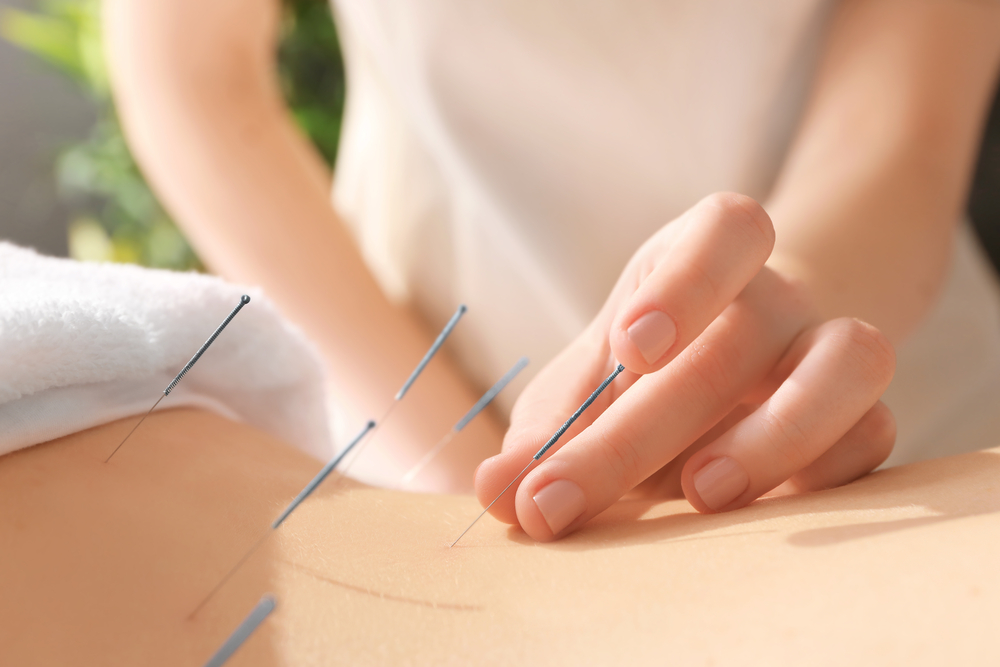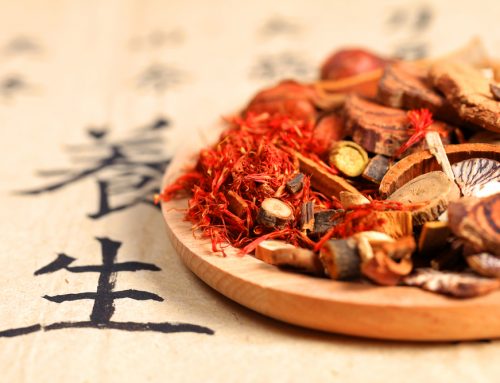By Xianmin Yu, R.Ac, R.TCMP
Polycystic ovary syndrome (PCOS) is a common health issue among women of childbearing age, with an incidence as high as 10%. It is characterized by hormonal imbalance and may be accompanied by many other abnormal metabolisms. The ovaries may not be able to develop eggs or release eggs regularly.
What are the symptoms of PCOS?
Most commonly observed clinical symptoms are:
- Irregular menstrual period, including prolonged or irregular periods, or even stopped periods.
- Weight problems, including weight gain and it is very difficult to lose weight.
- Abnormal hair growth and loss in unwanted areas, including excess facial and body hair which are due to elevated levels of male hormone, and/or hair loss on the head.
- Acne on face and chest, sometimes upper back.
What are the complications of PCOS?
Infertility. Studies indicate that PCOS is one of the most common causes of infertility in women.
Diabetes. Due to their abnormal metabolism, women with PCOS have a much higher risk of developing prediabetes and type 2 diabetes than women without PCO 2.
Hypertension. High blood pressure is a leading cause of cardiovascular disease. Women with PCOS also have a greater risk of having high blood pressure compared with women without PCOS 3.
Depression and anxiety.
Endometrial cancer. The risk of getting endometrial cancer is higher in women with PCOS 4.
What are the common causes of PCOS?
Excessive insulin. Insulin is secreted by the pancreas to allow cells to use blood sugar which is transformed from the foods you eat. The blood sugar level could become abnormally high if the body’s cells do not respond well to insulin, and then the body tends to produce even more insulin. This forms a vicious circle to accumulate excessive insulin in the body.
Excessive androgens. Androgens are related to the development of male traits. While the ovaries generate excessive androgens, it could cause abnormal hair growth and loss in unwanted areas and acnes.
Heredity. Although there is no single PCOS gene, a wide variety of genes seem to work on the development of PCOS with a wide range of symptoms for women. A few genetic studies indicate that genes affecting hormone levels and insulin resistance play a role in the development of PCOS 5-7.
How is PCOS explained in traditional Chinese medicine (TCM)?
According to TCM theory, PCOS is due to kidney deficiency and blood stasis. Kidney deficiency leads to malfunction of the conception vessel and penetrating vessel, which affects ovulation directly. In addition, liver qi stagnation also contributes to PCOS greatly.
Although there was no exact definition of PCOS at that time, it has been included in the following chapters: “scanty menstruation”, “amenorrhea”, “infertility”, “late menstruation”, “uterine bleeding”, etc.
Typical patterns are as follows:
- Kidney deficiency is characterized by scanty periods or amenorrhea, lower back sore and knee weakness, infertility, or irregular periods.
- Kidney deficiency and Liver stagnation, are characterized by easily getting irritated, hypochondriac pain, irregular periods, lower back sore and knee weakness, and low sexual desire.
- Kidney deficiency and Qi stagnation and blood stasis, which is characterized by dysmenorrhea, large clots in periods, prolonged periods, or amenorrhea, lower back soreness and knee weakness.
What could acupuncture do to help with PCOS?
In brief, acupuncture, together with herbs, is used to soothe the liver, get rid of phlegm, activate blood, and tonify the kidney.
According to meridians and collaterals theory in TCM, three main extraordinary meridians originate from the uterus, i.e., the Conception vessel, the governor vessel, and the penetrating vessel. In addition, a few meridians are passing through the uterus and ovaries area, namely the Liver channel, Spleen channel, and Kidney channel. Once these channels are regulated and the related organs are functioning normally, the uterus is expected to function well.
In the last two decades, quite a few randomized controlled studies suggest that acupuncture and herbs may promote blood circulation and adjust nutritional metabolism around the uterus and ovaries, and thus further influence the reproductive axis to promote healthy ovulation. Thus, it is recommended as a possible method to help with PCOS.
For women dealing with polycystic ovary syndrome, Traditional Chinese Medicine and acupuncture offer a holistic approach that combines the best of ancient wisdom and modern research. The holistic embrace of acupuncture and Chinese herbs, enriched by the wisdom of both ancient and contemporary TCM practices, lights the way toward healing and balance for women navigating the complexities of PCOS.
How many sessions are needed?
Usually, it is recommended once a week for a continuous 8-12 weeks, and then the practitioner will reassess your body condition and discuss with you about the next treatment plan.
Ready to Begin Your Journey to Wellness?
Embark on a transformative journey with Traditional Chinese Medicine. If you’re struggling with PCOS and seeking a natural, holistic path to better health, our team is here to guide you. With a unique blend of acupuncture and Chinese herbal medicine, we tailor treatments to your specific needs, aiming for balanced health and improved fertility. Don’t let PCOS control your life any longer. Contact Innate Wellness today to schedule your consultation and take the first step toward healing. Together, we can unlock the door to a healthier, more vibrant you.
References:
- Hanson, B., Johnstone, E., Dorais, J., Silver, B., Peterson, C. M., & Hotaling, J. (2017). Female infertility, infertility-associated diagnoses, and comorbidities: a review. Journal of assisted reproduction and genetics, 34(2), 167-177.
- Kakoly, N. S., Khomami, M. B., Joham, A. E., Cooray, S. D., Misso, M. L., Norman, R. J., … & Moran, L. J. (2018). Ethnicity, obesity and the prevalence of impaired glucose tolerance and type 2 diabetes in PCOS: a systematic review and meta-regression. Human reproduction update, 24(4), 455-467.
- Joham, A. E., Boyle, J. A., Zoungas, S., & Teede, H. J. (2014). Hypertension in reproductive-aged women with polycystic ovary syndrome and association with obesity. American journal of hypertension, 28(7), 847-851.
- Hardiman, P., Pillay, O. S., & Atiomo, W. (2003). Polycystic ovary syndrome and endometrial carcinoma. The lancet, 361(9371), 1810-1812.
- Wood, J. R., Nelson, V. L., Ho, C., Jansen, E., Wang, C. Y., Urbanek, M., … & Strauss, J. F. (2003). The molecular phenotype of polycystic ovary syndrome (PCOS) theca cells and new candidate PCOS genes defined by microarray analysis. Journal of Biological Chemistry, 278(29), 26380-26390.
- Diamanti-Kandarakis, E., Kandarakis, H., & Legro, R. S. (2006). The role of genes and environment in the etiology of PCOS. Endocrine, 30(1), 19-26.
- Goodarzi, M. O., Dumesic, D. A., Chazenbalk, G., & Azziz, R. (2011). Polycystic ovary syndrome: etiology, pathogenesis and diagnosis. Nature reviews endocrinology, 7(4), 219.






